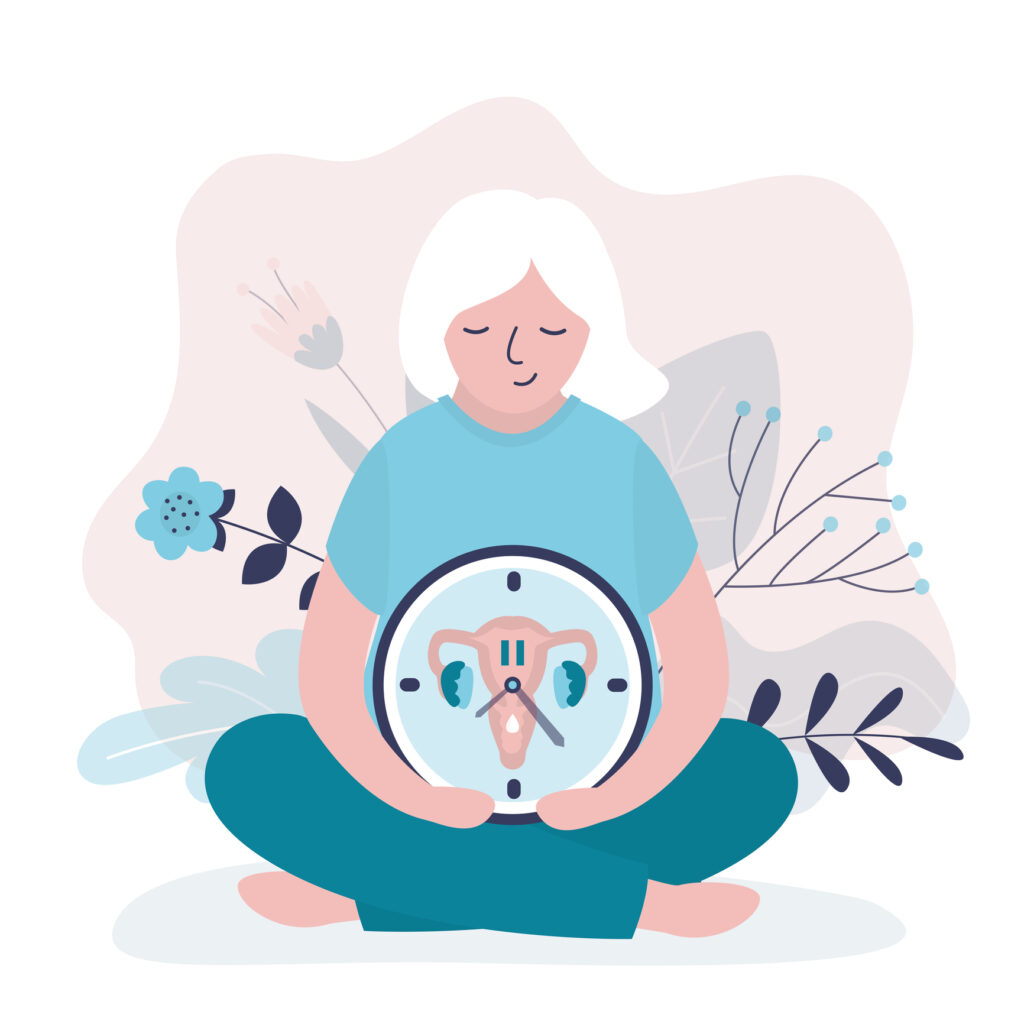It was just another Zoom meeting and I was talking with a client about 360 – my favourite topic and something I know lots about.
A slightly tricky question was asked and the ‘right’ answer to this somewhat political issue was not clear.
I started to feel really hot – burning from the inside-out, slightly sweaty. ‘Not again’ I thought as I tried to focus on the conversation while taking off a layer at the same time.
At points of stress, the hot flush emerges. This is not just bad luck though
The link between menopausal symptoms and stress
This is a familiar scenario to those who have gone through perimenopause and one I first noticed when I was 45 and is still going 15 years later!
At points of stress, the hot flush emerges. This is not just bad luck though.
It demonstrates the link between menopausal symptoms and stress – one with a complex dynamic and clear consequences on effectiveness and focus.
Senior jobs are tough enough without the added pressure of health concerns.
Success and effectiveness only come to the resilient, energetic and healthy.
Yet the hormonal symptoms experienced by every woman in her late 40s and 50s can lead any previously strong and ambitious career woman to disappointment and despair.
The hormone dance
The female hormones dance a complex dance from puberty until they settle in post-menopause.
This can lead to challenging consequences – and the ultimate perhaps, pregnancy – but, even for those who manage to work hard and fast through this journey, it can all change when this dance starts to slowly wind down.
Levels of oestrogen and progesterone decrease and the impact can be fatigue, hot flushes, sleep disturbance and/or mood swings – not just for a few weeks, but for five to 15 years.
This can be improved by HRT but, nevertheless, commonly leads to significant loss of confidence, focus, memory, energy, emotional control and, ultimately, the loss of the necessary ability and bandwidth to handle the stresses and challenges of life and work.
Levels of oestrogen and progesterone decrease and the impact can be fatigue, hot flushes, sleep disturbance and/or mood swings – not just for a few weeks, but for five to 15 years
A time for change?
In their 50s, women’s health can start to become a priority above career success.
They start to look for more flexibility and they may not talk about it, but they will realise they need to make a change to their career plan.
They may also start to feel the impact of these changes through a diminishing of respect from seniors and colleagues – this may occur gradually over time leading to an erosion of confidence and power.
The need to adjust skewed perspectives
The colleagues involved will be judging her on her effectiveness with no real understanding or appreciation of these hormonal challenges.
If women were receiving long term chemotherapy or something else with similar consequences, I would imagine everyone responding differently.
This is when quiet quitting collides with menopause.
If women were receiving long term chemotherapy or something else with similar consequences, I would imagine everyone responding differently
Wanting out
Currently, a desire to ‘survive’ the menopause does not sound like an inspiring reason to leave a good job so this will likely not be the presenting case.
The real figures are not clear but I have coached enough mature women who have wanted to find something easier to know that “focusing on my charity work/family” or “taking early retirement” is another way of saying “I want out” for women who are not used to anything other than full-on energy and easy success.
Organisations will continue to unnecessarily lose out on hugely talented and experienced leaders unless actions are taken to support women through this journey.
Time to take action
Here are six things you can do from an HR perspective:
1. Offer support and coaching. Personal, discrete, gentle and sensitive help can make all the difference, especially if it is delivered with empowerment and support as the intention.
Informal and formal mechanisms can be beneficial. Assume every woman over 50 needs help but will not naturally or easily be asking for it and you might get it right
2. Play the long game. This stage is inconveniently long and ill defined but it helps to look past it towards post-menopause.
Think of your talent plan for 10 years’ time, encourage everyone to consider their career within the context of their whole life, and the right priorities can be clarified for now
3. Think outside the box. This is not the time for ordinary career planning but an opportunity to create possibilities that will really work for women.
Encourage women to clarify their dreams at the same time as speaking the truth about their health issues.
Believe it is all possible and new ideas may emerge e.g., taking a sabbatical, studying for a PhD, becoming the mentor/trainer, focusing on a special project, taking a career break, retraining
4. Education and training. It is hard to talk about menopause and there is a lot of ignorance or lack of consciousness about it.
Make sure women are well informed and encourage self-help groups.
HR, coaches and line managers all need to be well trained and armed with a toolkit of resources to help
5. Offer stress-reducing tools. Meditation, relaxation, yoga, therapy, physical activity such as walking, swimming, the gym will all help.
New stress-monitoring tools such as the Oura health diagnostic ring supported with specialist coaching can be highly effective in clarifying how to re-organise your working patterns for lesser stress
6. Talent policies. Ensure you have menopause fully considered in terms of your absence policy, working hours, flexible working, sabbatical policy, career guidance and retirement
It is hard to talk about menopause and there is a lot of ignorance or lack of consciousness about it
A multi-dimensional approach
Empowering menopausal women is about more than just giving them breaks although, of course, this can help.
But, if you really want to prevent costly quiet quitting in your more mature women, it will take a multi-dimensional approach and, most importantly, open honest conversations about this taboo topic.
If you enjoyed this, read: Menopause: How to break the taboo at work
[cm_form form_id=’cm_65a14c3f5da64′]






